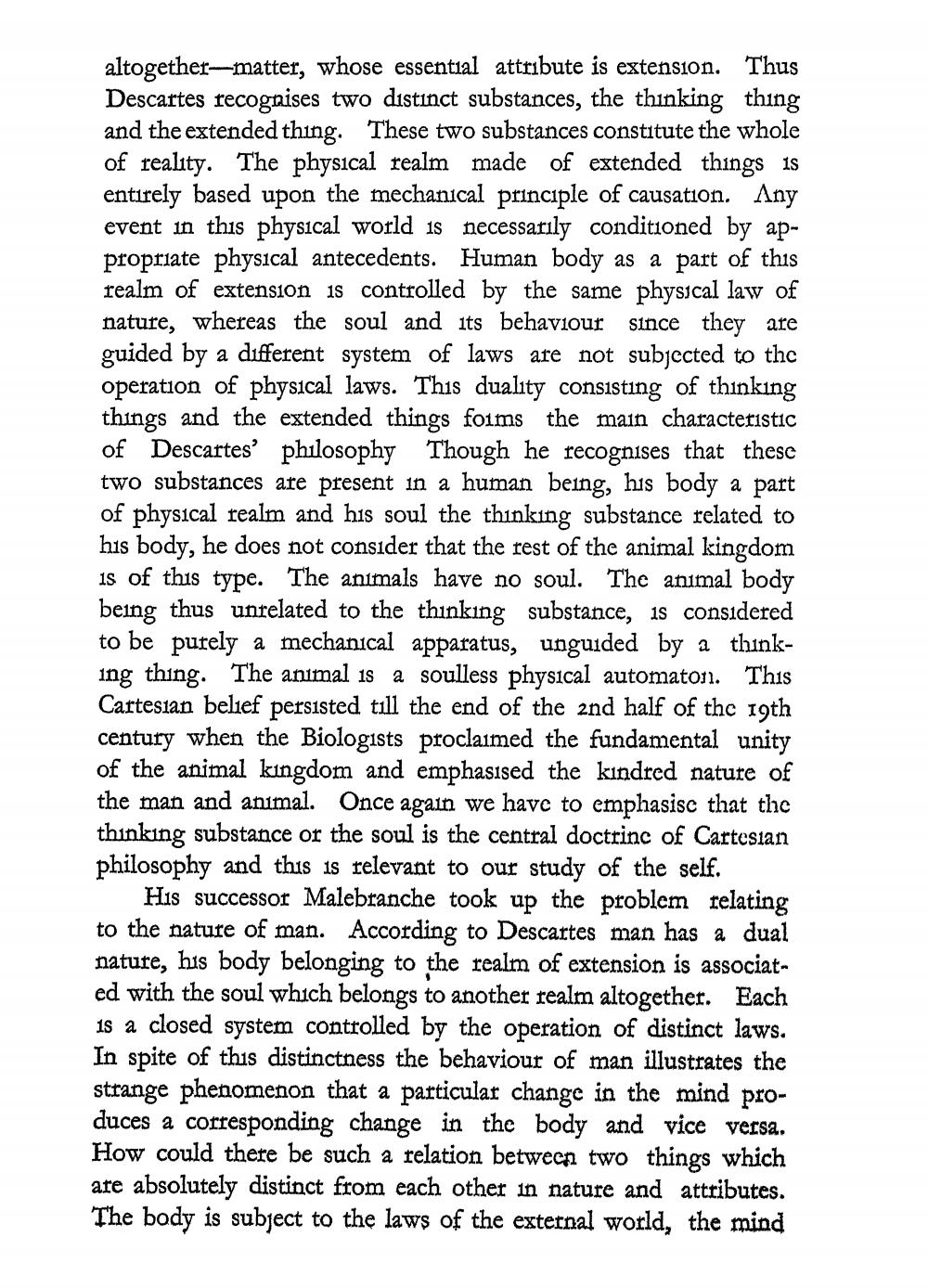________________
altogether-matter, whose essential attribute is extension. Thus Descartes recognises two distinct substances, the thinking thing and the extended thing. These two substances constitute the whole of reality. The physical realm made of extended things is entirely based upon the mechanical principle of causation. Any event in this physical world is necessarily conditioned by appropriate physical antecedents. Human body as a part of this realm of extension is controlled by the same physical law of nature, whereas the soul and its behaviour since they are guided by a different system of laws are not subjected to the operation of physical laws. This duality consisting of thinking things and the extended things foims the main characteristic of Descartes' philosophy Though he recognises that these two substances are present in a human being, his body a part of physical realm and his soul the thinking substance related to his body, he does not consider that the rest of the animal kingdom is of this type. The animals have no soul. The animal body being thus unrelated to the thinking substance, is considered to be purely a mechanical apparatus, unguided by a thinking thing. The animal is a soulless physical automaton. This Cartesian belief persisted till the end of the 2nd half of the 19th century when the Biologists proclaimed the fundamental unity of the animal kingdom and emphasised the kindred nature of the man and animal. Once again we have to emphasisc that the thinking substance or the soul is the central doctrinc of Cartesian philosophy and this is relevant to our study of the self.
His successor Malebranche took up the problem relating to the nature of man. According to Descartes man has a dual nature, his body belonging to the realm of extension is associated with the soul which belongs to another realm altogether. Each is a closed system controlled by the operation of distinct laws. In spite of this distinctness the behaviour of man illustrates the strange phenomenon that a particular change in the mind produces a corresponding change in the body and vice versa. How could there be such a relation between two things which are absolutely distinct from each other in nature and attributes. The body is subject to the laws of the external world, the mind




